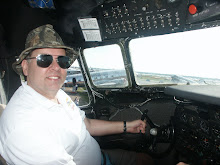In the spring of 1980, as my first year at Georgia Tech was coming to a close, my parents were coming to pick me up and take me home to West Virginia in June. My brother Ben suggested during the trip, we could take the FCC exams for Amateur Extra class. At the time, we were both General class, and all exams were administered at official FCC offices, such as Atlanta.
I wondered how I might practice for these exams. Although I was a member of the Georgia Tech club station W4AQL, getting access was a hassle. I hadn't been on the air since I'd come back to Tech in January. I was afraid I had forgotten Morse code entirely. My solution was to write a code practice program for my SWTPc 6800 Computer System, using the Kreepie Peepie.
The program is small, just over 200 bytes long. It creates a five character code group by choosing characters randomly. Then it sends the group, complete with a word space. A check of the serial port determines if someone has input a character, indicating a request to stop. If not, it continues to generate and send the next five character group.
The characters themselves are sounded out by toggling a bit on the Kreepie Peepie. A wait loop of roughly a millisecond is used. This gave a pitch of about 1 kHz. The wait cycles are repeated a sufficient number of times to sound out the element (BAUDV). Silent periods used the same timing element, without toggling the Kreepie Peepie. This made it easy to adjust speed by changing the BAUDV location. I had this programmed to 64, which came out right about 20 wpm.
I'd typically run the program for a few minutes, copying as many of the five character groups as I could. It was enough. I passed the FCC 20 wpm exam.

No comments:
Post a Comment